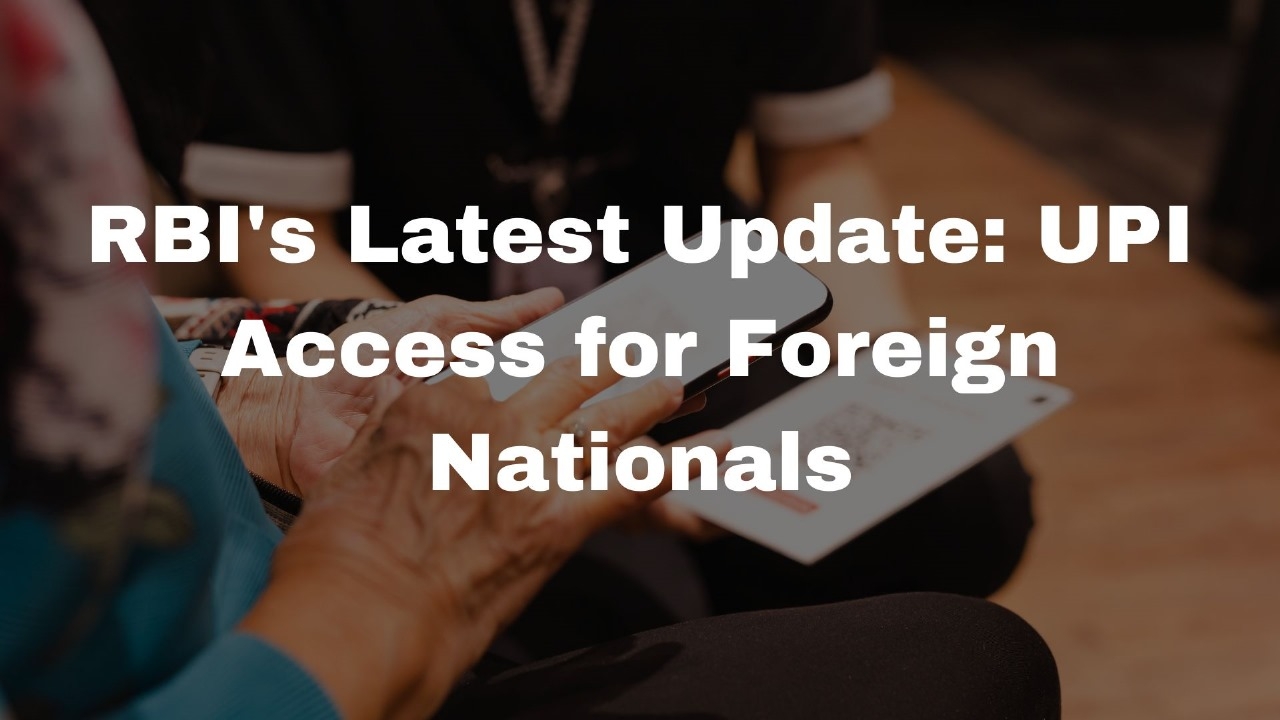
RBI's Latest Update: UPI Access for Foreign Nationals
The Reserve Bank of India (RBI) has announced a groundbreaking move to expand the accessibility of the Unified Payments Interface (UPI) system to foreign nationals and Non-Resident Indians (NRIs). This initiative underscores India's commitment to embracing digital innovation and broadening its financial ecosystem.
Understanding UPI and Its Evolution
The Unified Payments Interface (UPI) is a real-time payment system developed by the National Payments Corporation of India (NPCI). Launched in 2016, UPI revolutionised digital payments in India by enabling seamless transactions through mobile applications. It facilitates peer-to-peer and merchant transactions without the need for traditional bank details or lengthy processes.
Over the years, UPI has grown exponentially. As of 2024, it handles billions of transactions monthly and has become a cornerstone of India’s digital economy. The RBI's decision to extend UPI access to foreign nationals marks another significant milestone in its journey.
The New RBI Policy: Key Highlights
-
Who Can Access UPI? Foreign nationals visiting India and NRIs with international phone numbers linked to their Non-Resident External (NRE) or Non-Resident Ordinary (NRO) bank accounts are now eligible for UPI services.
-
Supported Countries (Phase 1): The initiative begins with travellers and NRIs from key countries, including the United States, Singapore, Australia, Canada, and the United Kingdom.
-
Eligibility Requirements:
-
A valid international phone number.
-
An NRE or NRO account with UPI-enabled banks in India.
-
-
Ease of Access: Foreign nationals can link their international phone numbers to their bank accounts and use UPI apps like Google Pay, PhonePe, or Paytm to make payments.
Importance of This Initiative
1. Boosting Tourism:
India is a popular destination for international tourists. Simplified payment systems eliminate the need for cash and currency exchange, enhancing convenience.
2. Globalization of UPI:
It moves positions UPI as a globally recognised payment platform, paving the way for future cross-border payment collaborations.
3. Enhancing Financial Inclusion:
By enabling NRIs and foreign nationals to access UPI, the RBI ensures a more inclusive financial system that accommodates the needs of diverse users.
4. Encouraging Digital Payments:
This step aligns with the Indian government’s vision of a cashless economy by encouraging the adoption of digital payment systems.
Challenges and Potential Concerns
While this initiative is commendable, some challenges need to be addressed:
-
Regulatory Compliance: Ensuring foreign nationals adhere to RBI’s regulatory framework is crucial to maintaining financial integrity.
-
Technical Integration: Linking international phone numbers and bank accounts requires robust backend systems to handle the complexities of cross-border integration.
-
Awareness and Adoption: Educating foreign nationals about the process and benefits of UPI is essential for widespread adoption.
Winding Up Note
The RBI’s decision to extend UPI access to foreign nationals reflects India's progressive stance on digital payments and financial inclusion. This initiative enhances convenience for international visitors and positions UPI as a potential global leader in digital payment systems. As UPI continues to evolve, it promises to bridge the gap between domestic and international financial ecosystems.
In case of any query regarding RBI's Latest Update, UPI Access for Foreign Nationals, feel free to connect with our legal experts, Tulja Legal, at +91 96380-69905
About the Author
Anju S Nair
Legal Researcher | LLB, MA English| Corporate Lawyer | Business Enthusiast | Founder & CEO at iLawbook.
FAQs
1. What is UPI, and how does it work?
UPI is a digital payment platform that allows instant money transfers through mobile devices using unique Virtual Payment Addresses (VPAs), QR codes, or bank account details.
2. Which countries are currently eligible?
Visitors from the US, UK, Australia, Singapore, and Canada can access UPI initially. The list is expected to expand in subsequent phases.
3. How can foreign nationals use UPI?
Foreign nationals need an NRE/NRO account linked to an international phone number. Once connected, they can register on UPI-supported apps and start making payments.
4. Can tourists use their home bank accounts for UPI?
No, tourists need an Indian bank account (NRE or NRO) to utilise UPI services.
5. Is there a transaction limit?
Yes, transaction limits for foreign nationals will align with existing UPI guidelines, typically capped at INR 1,00,000 per day unless specified otherwise.
6. Are there any fees for using UPI?
Currently, UPI transactions are free for users. However, charges might apply in the future as per RBI guidelines.
7. Which UPI apps can foreign nationals use?
They can use any UPI-enabled app, such as Google Pay, PhonePe, or Paytm.
8. How does this benefit NRIs?
NRIs can use UPI for seamless payments during visits to India, reducing reliance on cash or international credit/debit cards.
9. Is this system secure?
Yes, UPI employs multi-factor authentication and end-to-end encryption to ensure secure transactions.
10. What are the plans for UPI globalisation?
The RBI aims to expand UPI’s global presence through collaborations with international financial institutions and payment systems.
References
-
Reserve Bank of India. (2024). Press Release on UPI Access for Foreign Nationals.
-
National Payments Corporation of India (NPCI). (2024). UPI Statistics and Reports.
-
Ministry of Finance, India. (2024). Digital Payments Vision.
-
Times of India. (2024). RBI Expands UPI to Foreign Nationals: What It Means.
-
Economic Times. (2024). Explained: RBI’s UPI Push for Tourists and NRIs.
